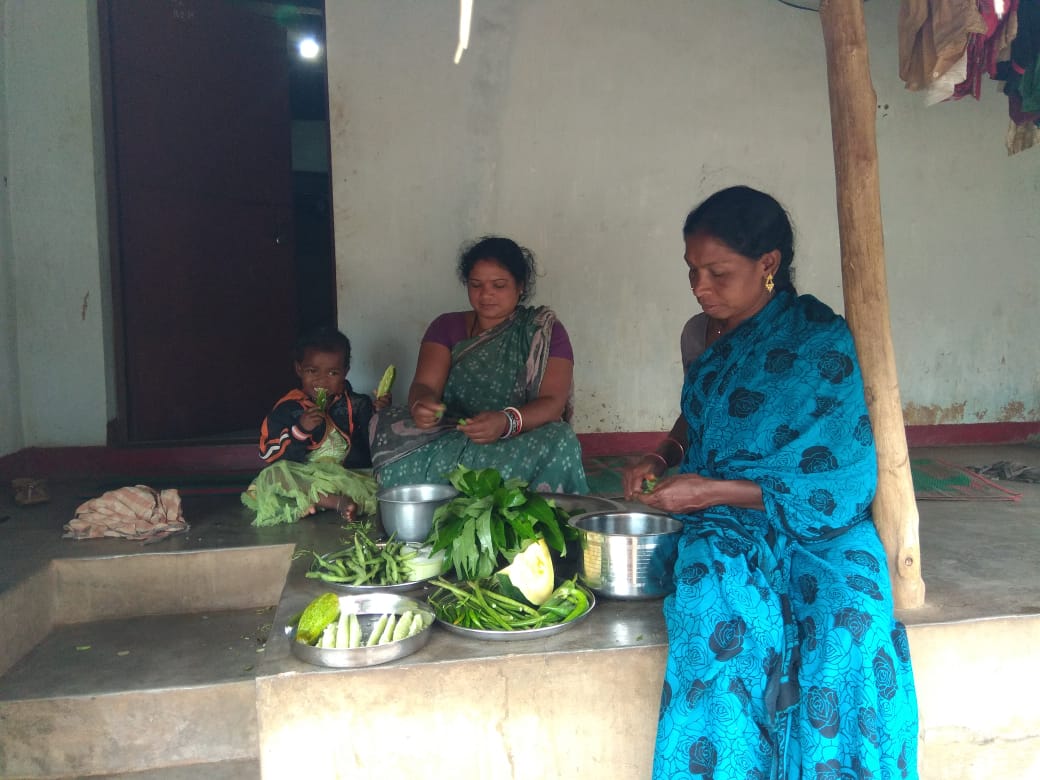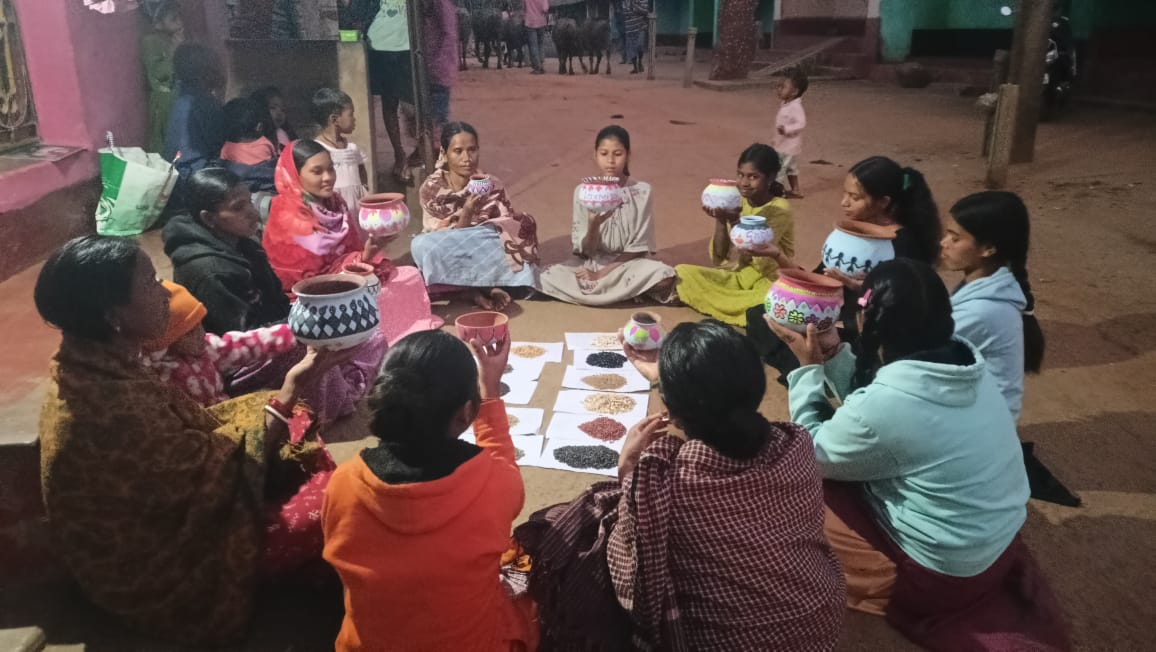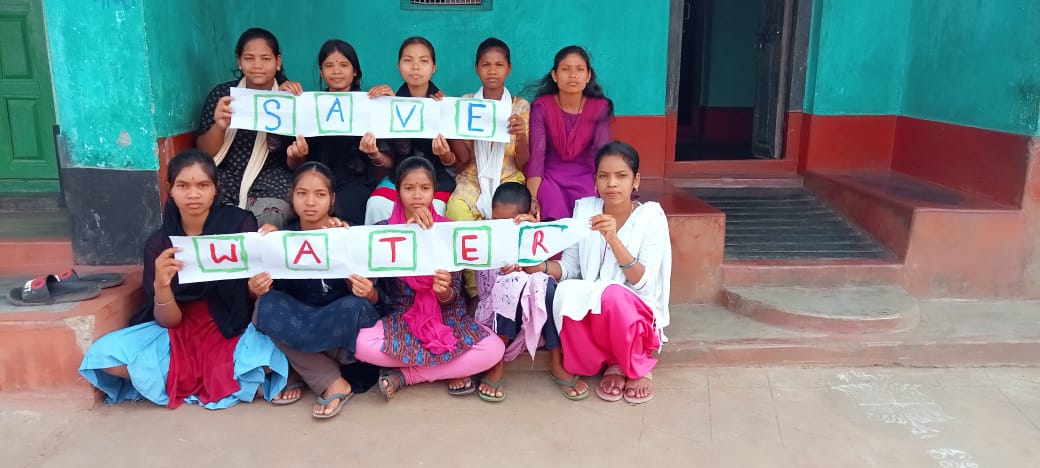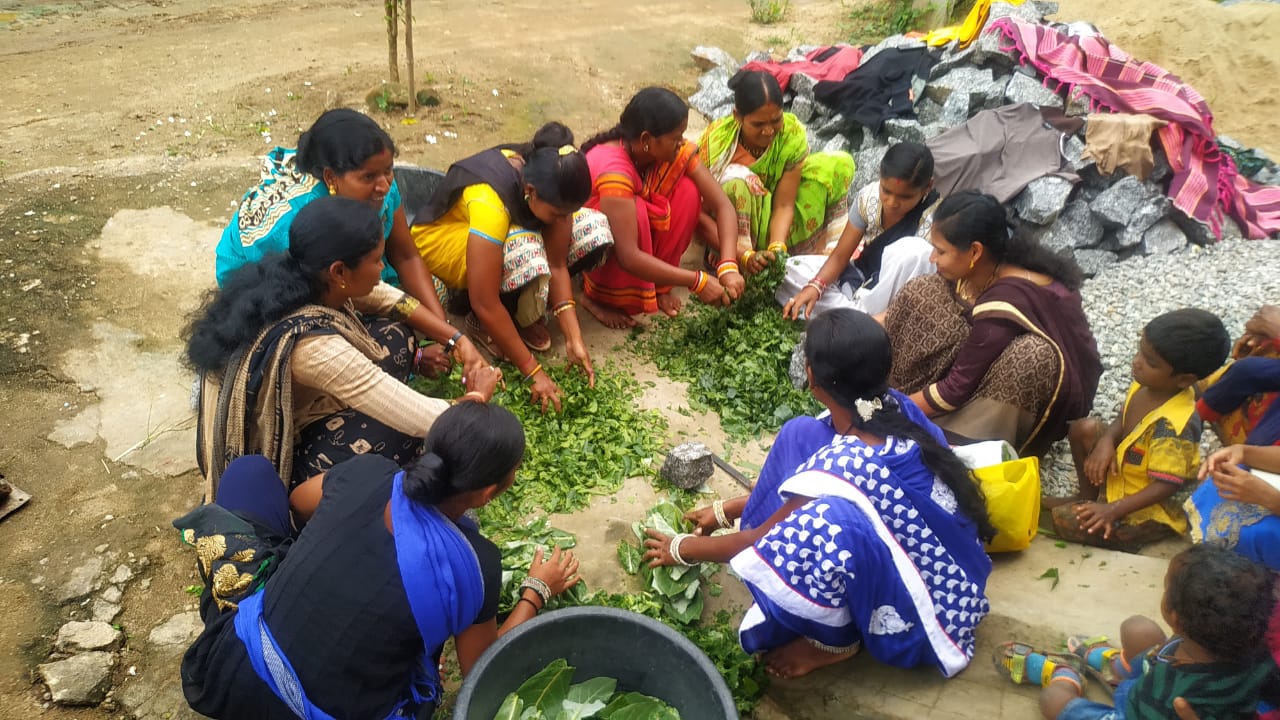ABOUT US /
WHO WE ARE
WHO WE ARE
Living Farms was initiated in 2008 based in Odisha, India. The organisation engages with local communities in rural Odisha to cultivate critical consciousness; and nurture the ability to objectively analyze the root causes of the current crisis. We do not limit our efforts to address immediate problems, but have been partnering with local communities to respond to the challenges and help create linkages and solidarities between different local grassroots initiatives, academia, researchers, media, and the government, by fostering innovative dialogues in meaningful ways, valuing local and traditional knowledges and stimulate ethical action for our collective wellbeing, and address ecological crisis.
As an organization with respect on the abilities and wisdom of local communities, especially women, Living Farms has been partnering with them in understanding the underlying ethos of their perspectives, and to further strengthen their preparedness to not only recognize and analyze the nature and causes of the issues in the context of food, and nutrition security that affect them, but also to evolve locally appropriate empowering solutions through action research and / or adapt successful models to address household food insecurity, reduce maternal and child under nutrition and contribute to wellbeing of communities. It helps in development of local leadership, horizontal networking amongst villages and deepening and widening the impact of the change process.
Living Farms has initiated its work on addressing under-nutrition of women and children in 2011 using community mobilization as a strategy and had an innovation on linking agriculture, and natural resources with nutrition to improve dietary diversity of women and children between 2013 and 2015. The results of the innovation were quite encouraging in terms of improving household dietary diversity. This is how Participatory Learning and Action-Linking Agriculture Natural resources with Nutrition took shape(PLA-LANN) had evolved as a strategy.
The journey in addressing under nutrition

Living Farms has initiated its work on addressing undernutrition of women and children in 2011 using community mobilization as a strategy and had an innovation on linking agriculture, and natural resources with nutrition to improve dietary diversity of women and children between 2013 and 2015. The results of the innovation were quite encouraging in terms of improving household dietary diversity. This is how Participatory Learning and Action-Linking Agriculture Natural resources with Nutrition took shape(PLA-LANN) had evolved as a strategy .

Azim Premji Philanthropic Initiatives (APPI) and Living Farms began a dialogue in late 2015 on reaching out to Adivasi households in Rayagada and Kalahandi with PLA-LANN to improve dietary diversity of women and children. This dialogue gave birth the project, Food and Agroecological Approaches to address Malnutrition (FAARM) in 2016.rnutrition was recognized and awarded as Transform Nutrition Champions by IFPRI, and Institute of Development Studies (IDS), Sussex in 2016.
Living Farms got an invitation from UNICEF, to help them in integrating PLA-LANN in their “SWABHIMAAN program”, which aims at improving the nutritional status of girls and women before conception, during pregnancy, and after child birth in Odisha and Chhattisgarh. This collaboration began in 2016 and got scaled up in 2018 to 18 blocks in 8 districts of both the states.
The FAARM project, a nutrition sensitive intervention, was implemented using a participatory approach to improve dietary diversity for approximately 100,000 Adivasi and Dalit households in two districts of Odisha. Valid International, an international research organization conducted a detailed impact assessment which concluded that the project had a significant impact on both maternal and child dietary diversity.

The effective learnings of the FAARM project are being scaled up by in 107 blocks of 28 districts in the state of Odisha by Odisha Livelihood Mission, Panchayati Raj & Drinking Water department, with support from Azim Premji Philanthropic Initiatives (APPI) under a program titled as “Mo UpakariBagicha” to improve dietary diversity of women and children. Living Farms is one of the Resource organisations for the “Mo UpakariBagicha” program . Living Farms has developed two distinct implementation strategies of varying intensities to simultaneously improve dietary diversity of women and children in the community and ensure that the program could be sustained by the partnering communities and scaled up by government.Living Farms has prepared trainers’ manual on Community mobilization (PLA) and Linking Agriculture , Natural Resource and Nutrition (LANN) in multiple languages including Odiya and has a done a pioneering study on Forest Foods as a strategy to improve food and nutrition security.

Living Farms was invited to present its work on local food system community mobilization and nutrition by The University of Sydney, Australia, University of California, Irvine, the USA, Calcutta University, Dhaka University, Heidelberg University,Germany University of Hoinham, Germany, University of Lueven, Belgium, Mastritch University, Netherlands, Tata Institute of Social sciences, Mumbai, Azim Premji University, Bangalore, Ministry of Tribal Affairs, Government of India, European Union Parliament, Brussels, United Nations Environment Program ,Chhattisgarh State Rural Livelihood Mission, Bihar Rural Livelihood Mission and Odisha Livelihood Mission etc.
Living Farms’s approach to addressing undernutrition was recognized and awarded as Transform Nutrition Champions by IFPRI, and Institute of Development Studies (IDS), Sussex in 2016.The impact of dietary diversity program initiated by Living Farms with support from Welthungerhilfe and being scaled up by Odisha Livelihood Mission (OLM) reflected with support from Azim Premji Philanthropic Initiatives(APPI) to 107 blocks got evaluated by Ashoka Fellowship using the criteria of Social Impact of the Idea, Entrepreneurial Quality, Creativity and the Ethical Fiber, and got selected for internationally respected for Ashoka Fellowship .
